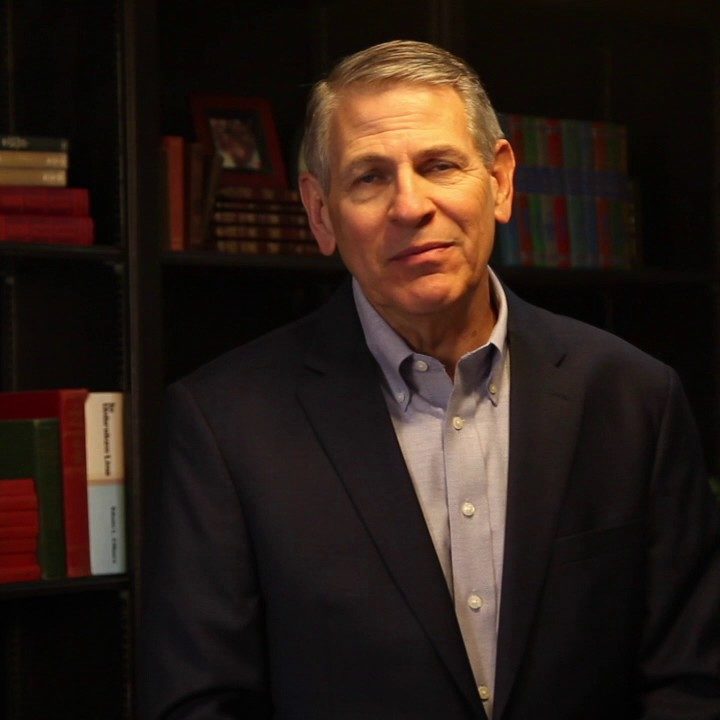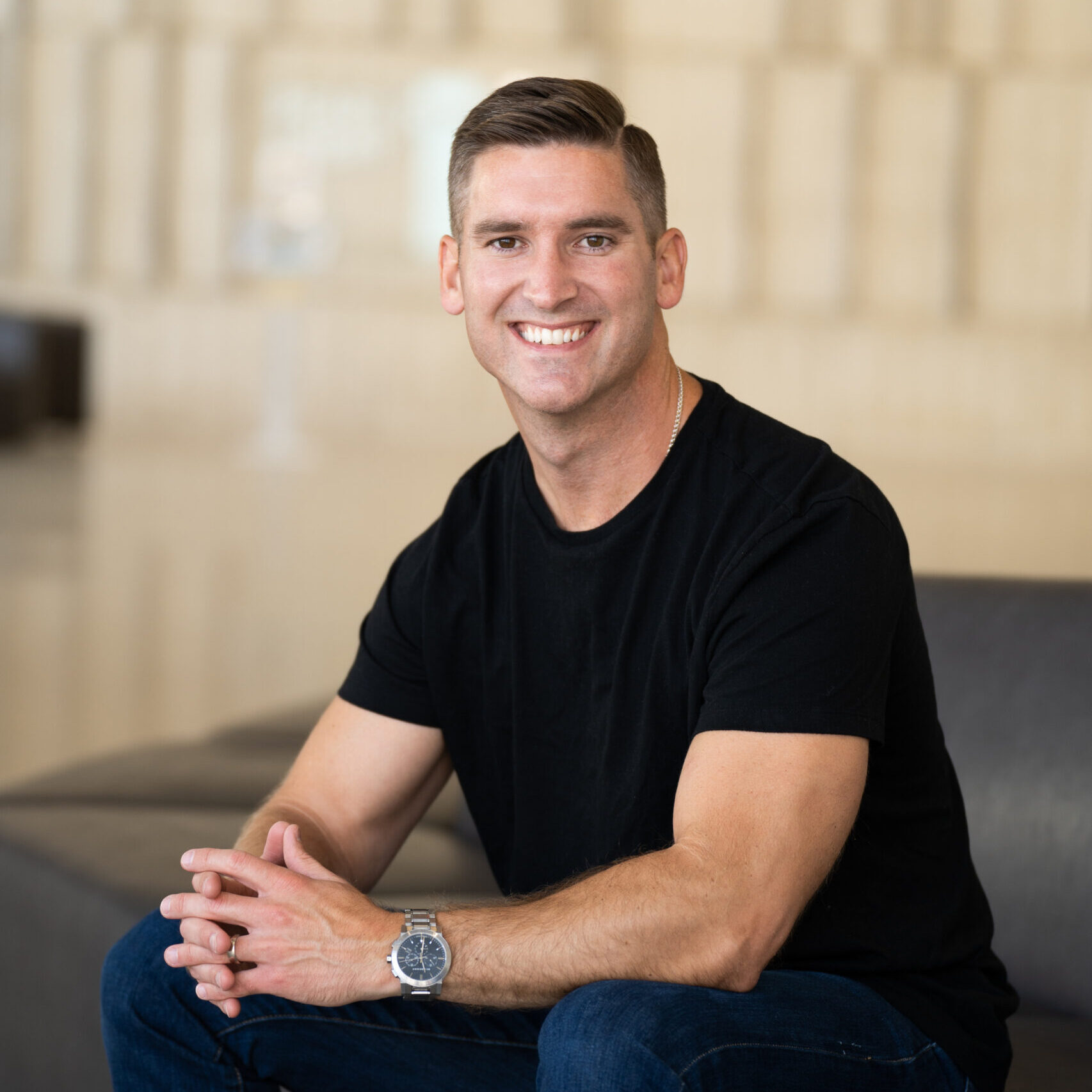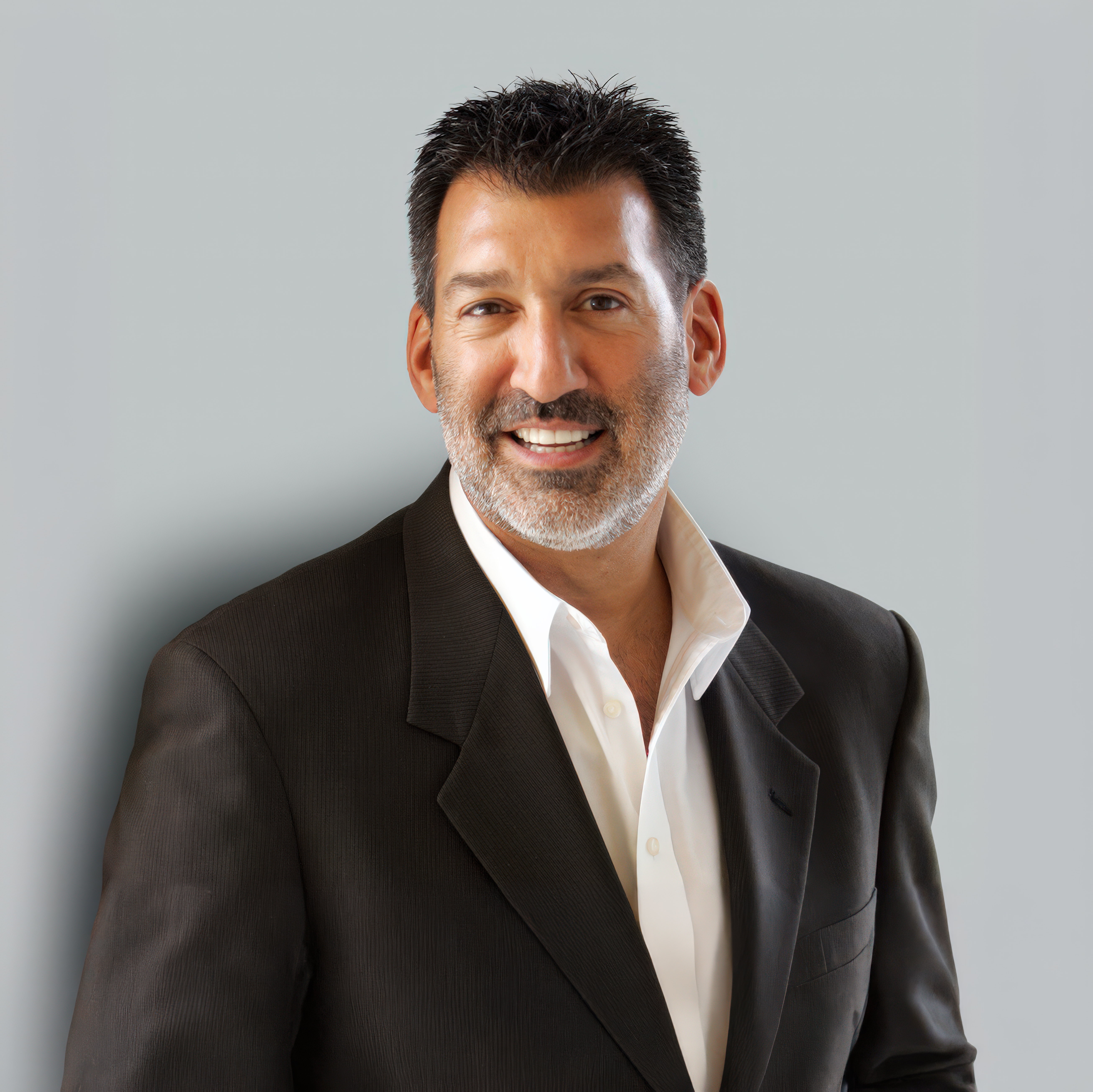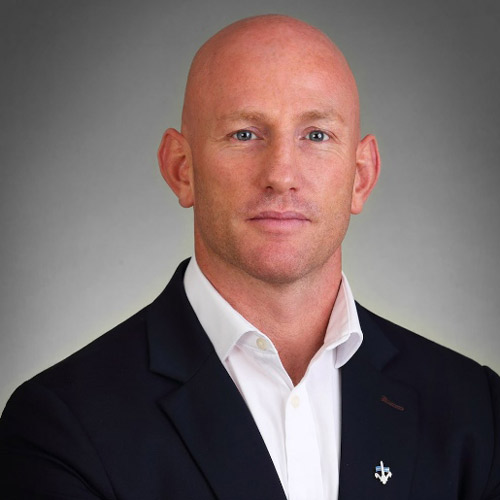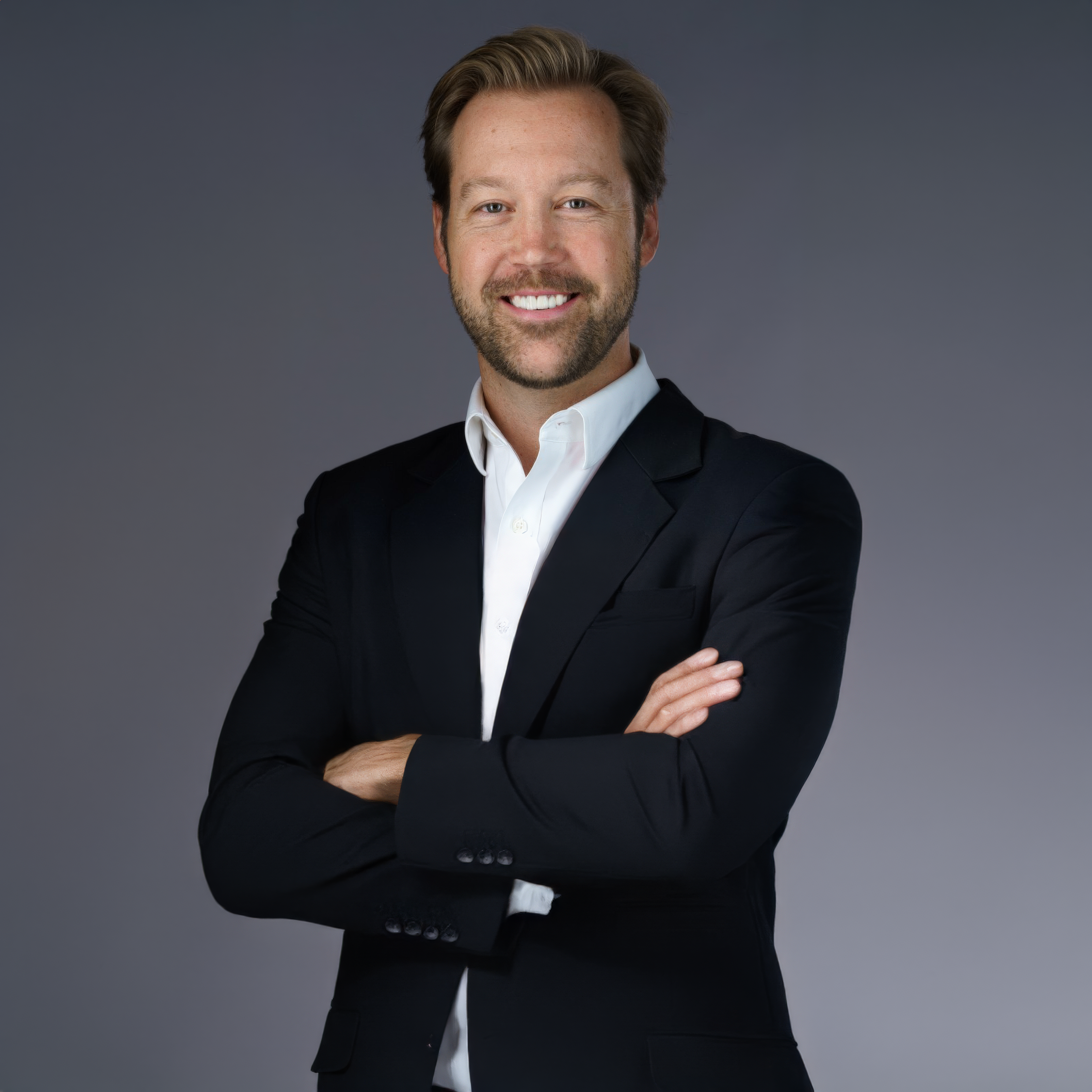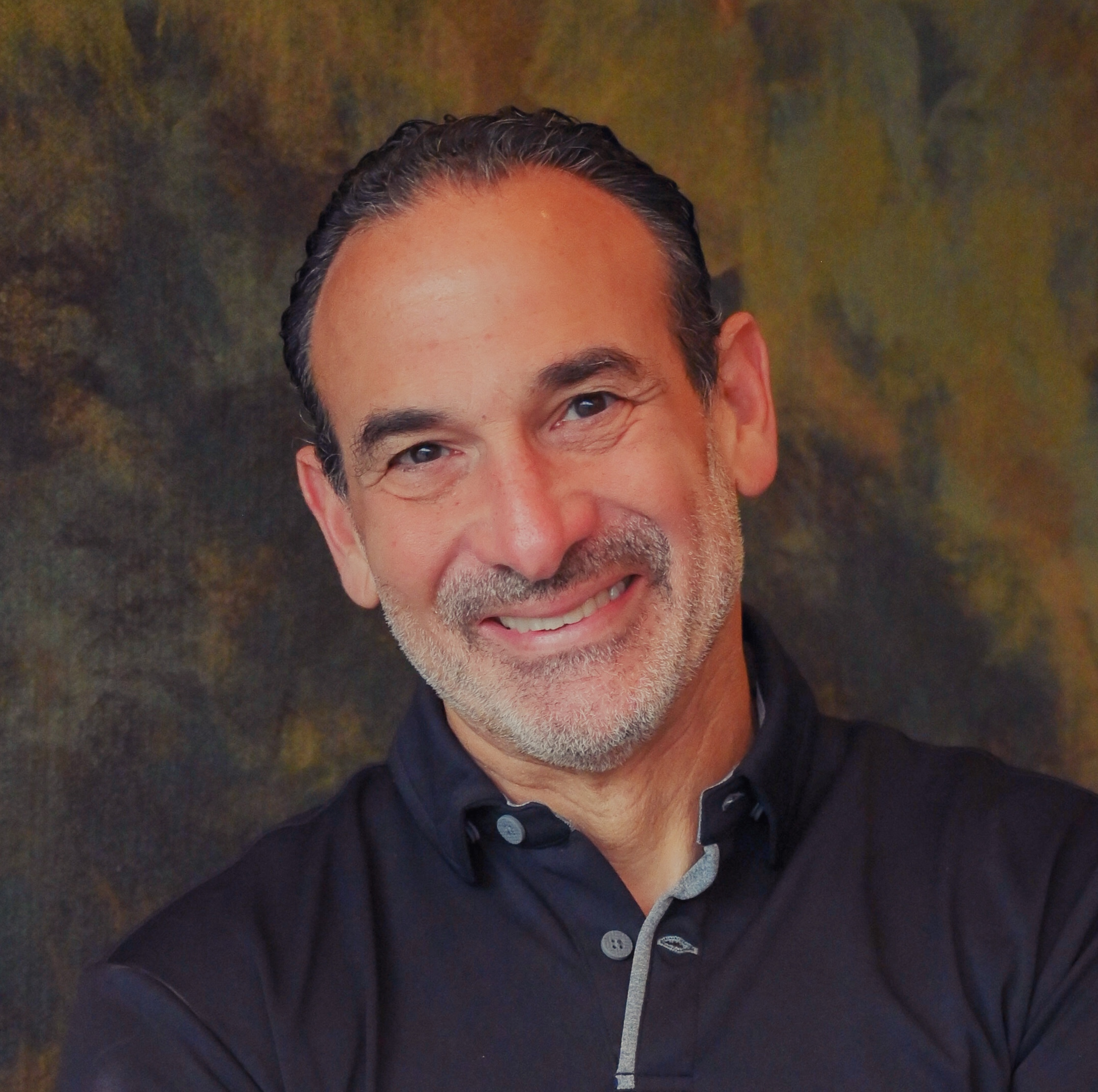Speaker 1: (00:05) [Inaudible] RV: (00:06) Hey, brand builder, Rory Vaden here. Thank you so much for tuning in to listen to this interview, we are so excited to bring you this information and wanted to let you know that, Hey, there’s no sales pitch coming from anything that we do with this is all our value add to you and the community. However, if you are somebody who is looking for specific strategies on how to build and monetize your personal brand, we would love to talk to you and we offer a free call to everyone that’s interested in getting to know us and is willing to give us a chance to get to know them and share a little bit about what we do. So if you’re interested in taking us up on a free strategy call, you can do that at brand builders, group.com/summit. Call brand builders, group.com/summit. Call. Hope to talk to you soon on with the show you are about to meet one of the smartest people that I know Jim combi is a J D and MBA from Harvard. RV: (01:13) He is a former attorney general in the state of Missouri, and he is one of the most recognized experts. I think in specifically the South wheat Southeast of buying and selling businesses. So he’s a business transition specialist. He wrote a book on the topic it’s called home, run a pros guide to selling a business, and he’s just become a Jay and I have become close with him over the years. I’ve learned a tremendous amount from him. One of our events, eight figure entrepreneur, it’s a, one of our phase four events. We actually talk about a lot of the principles that we’ve learned from Jim. And so we thought, Hey, you should hear from him directly and, and get to meet him. He’s also a brand builders clients. So those of you that are clients, you may, you may see him at one of our events, he’s in the community. JC: (02:04) So Jim, welcome to the show. JC: (02:07) Great to be here. Let me, let me clarify. I was not a former attorney general of Missouri. I was a former assistant attorney general in the state of Missouri. So I don’t, I don’t want my boss, my old, my, my boss and good friend, John to think I was trying to co op to sidle. RV: (02:26) That’s good. Yes. Thank you. Thank you for that. But you’re also a Tennessee Supreme court general civil mediator. I mean, you’ve got a lot of stuff going on, but when I think of you, I think of you as like the, one of the go to people on my life for understanding business valuation buying and selling companies, how do they, how does it work? What’s the process. And so, you know, AIG and I were talking about people we should have on the show and, and personal brands are interesting because they are businesses, but they have some specific dynamics, which I do want to talk about. But before we get into that, can you just talk in general, if somebody doesn’t understand how businesses are valued, like when you sell it, like, we all know like how to sell a car or how to sell our clothes on Craigslist or something, but how is a company valued when you go to sell a company, just like walk us through the basic mechanics of that? JC: (03:27) Well, it’s a lot more art and science because no two businesses are alike. You know what let’s think about the house parallel. For example, if I, if I sell my house, I want to value my house. You know, the, the, the appraiser will look at comps in the neighborhood, you know, square footage. Does it have a pool? I have a porch and, you know a fourth bedroom, a finished basement and they add or detract subtract, and they kind of reach a, a, an appraised valuation. This is, are not like that at all. You have to kind of balance a quantitative look at the business and a qualitative look at the business, but a quantitative is what people are most used to seeing and hearing and talking about. And that is, you know, a function of their, their EBITDA, which is a EBITDA is a, is an acronym for or stands for earnings before interest taxes, depreciation, and amortization, even you could think of it as net operating income or cash flow RV: (04:37) Terms. It’s kind of like, think of, think of profit, right? JC: (04:40) Right. But you take that number, EBITDA, a profit, and then you have apply a multiple to it. You know, and people walk and talk at the country club or cocktail parties or gatherings. And what kind of multiple did you get, or this guy got this multiple of this gal got that multiple. And that can be a gift, very confusing metric. But, but quantitatively, you’ve got to look at the growth of the business. The, the revenue, the revenue growth, you’ve got to look at the profit margin percentage. And then you have to look at the course of total size of the, but those three things for a triangulate to give you a multiple, RV: (05:21) Say that again, the revenue growth, the profit margin percentage JC: (05:26) Margin, and then the overall size of the business. I mean, for example, a $1 million EBITDA, well, we’ll sell for less than a $2 million EBITDA. Multiple will be larger. The multiple itself would be larger. Let’s say all things considered equally the multiple on a $1 million business may be, let’s say seven. I would say the same business with the same characteristics. If it’s a $2 million EBITDA would probably get a multiple higher than seven, maybe even as high as eight, just because just the rationale that buyers will pay more for size size does matter. So obviously the business will is more valuable to me than 1 million by definition, but it also will get a higher, multiple, so size revenue, growth and profit margin are the quantitative factors. And that’s often where people stop. And that’s a really big mistake because, RV: (06:32) Well, hold on a sec, cause I want to talk about the qualitative too, but so basically if I have a multiple, it’s kind of like going, I have one year of profits is some number, and then I multiply that times, the multiple, which is a determined by these kind of three factors you’re figuring out. And then that’s what gives me the quantitative part of, of this as like the business would be worth, like if I had a a million dollars in profit and a 10 multiple, then that would be a $10 million valuation. Right, JC: (07:04) Right, right. Okay. Now, so that’s, that’s where most people stop, but the smart buyers start there that the smart buyers go to the qualitative factors. And that’s what I wrote my book on home run a pros guide to selling a business. I called them the seven principles of irresistibility and the seven principles are the qualitative factors by which a buyer really is thinking, this is really what’s filtering through a buyer’s mind. And by the way, that buyer, whether it’s, whether she’s buying a business worth a million dollars, or whether she is head of merger, requisition, and buying a business for a hundred million dollars at a large company, these are the same factors that sort of filter through a buyer’s mind. And these qualitative factors are kind of what moves the multiple up or down. So the quantitative you kind of get a basic understanding. JC: (08:13) And then the example you used earlier of a 10. So the buyer looks at the quantitative evidence that says this business is worth a 10, but let’s now look at the qualitative evidence and see how that might move that multiple up or down. And the qualitative factors are the diversity of the customer base, the sustainability of the revenue stream, the quality of the financial statements, the scalability of the businesses, the business demonstrated an ability to get more profitable as it grows. Is there a uniqueness to the business that really is the state that that creates value is the business independent of that owner. Can the owner walk away? And I know we’ll talk about this principle later. Can the owner walk away from the business and the business continue? And then, then finally, is there a believable growth strategy, any buyer eyes on the premise of future growth? So if you can communicate a growth strategy and I don’t mean put more money in marketing, that’s not really a growth strategy. So those are the seven factors. So how, how you, how you kind of judge a business and those seven factors may move that multiple. Often they move it down and that’s the art that’s. I have to stop there because that’s the art. There’s, there’s, there’s no way to really quantify how that moves. RV: (09:38) So I missed one of them. I got diversity of the customer basis, JC: (09:44) The sustainability of the revenue stream. RV: (09:46) That’s the one I missed. Okay. Sustainability of the revenue streams, quality of the financial statements, scalability of the business uniqueness of the business, independence of the owner, and then the believable growth. JC: (09:59) Right? Right. So these are the, these are the factors. It’s kind of like when I wrote the book, I really spent a lot of time over having done this for over two decades. Kind of really thinking about RV: (10:13) You’ve sold hundreds of millions of dollars of businesses, JC: (10:19) Including my own. I, I, I sold my own. I left the Walt Disney company 20 years ago, 20, 25 years ago, and bought a radio business, how I got to Nashville by the way, and bought a radio business and bought it out of bankruptcy. And four years later, I actually made three acquisitions and cobbled together. And four years later, I sold that business to a publicly traded company. So I’ve, I’ve been I’ve been a buyer and a seller and I’ve been an advisor. So yeah, so these, these seven factors are really how a buyer thinks. And every situation is different. In some cases, the sustainability of revenue is less important than the growth story. Sometimes the diversity of the customer base is more important than older independence. That’s all a function of the buyer objective. And this is where I go back to the buying a house is much more of a science. Whereas this business is much more of an art because every buyer’s objectives are different. So there is no absolute right or wrong as to how to value a business. That’s kind of a long answer to your question. How do you value a business? Well, kind of a, it depends is the real answer. RV: (11:30) Yeah. But it gives you, it gives you an idea and then you have, you know, basically like strategic buyers would be somebody who knew that, like, if they knew that your house was, you know, buried or was built on top of a gold mine or something, or built on top of some natural resource that they could mine. Now that house is more valuable. It’s kind of like going like, well, the house is worth, but we’d pay more for it because it’s right next to our country club or it’s right next to ramp. Right. JC: (11:58) Right. I was outside. I was, I was outside this morning with my grandchildren playing in the backyard and my neighbor’s house is for sale. And I was thinking, boy, I’d love to buy that house and have one of my children move in next door. I would pay more for that house. RV: (12:15) Yeah. So, JC: (12:18) Well, I’m not sure my children, I’m not sure my children have such a good idea. RV: (12:24) They’d be into it. But I think so there’s a lot that goes into the valuation part, but specifically for personal brands here, do you think it’s possible? You know, cause I think when someone starts a personal brand, a lot of times like our audiences mission-driven messengers and we go, Hey, I want to start. Cause I just, I wanna, I want to help the world. I want to make the world a better place. And then you get into it. And you know, at first it’s like basically sucks a bunch of money and time, but then you start to be successful at it. And hopefully you’re learning some things and then you go, wow, I’m making real money. And then it’s like, gosh, I’m making real, real money. And then at some point there’s a few personal brands that seem to get to the point. You know, I think like Dave Ramsey, it’s a hundred million dollar company where you go, this is, this is the kind of thing that changes generations. Is that possible? I mean, do you think it is possible for a personal brand to become a business that has a sellable equity or because of your number six, if a personal brand is built around the personality of the person you’re saying that that maybe isn’t as independent. So is it not sellable or like you just talk, talk, talk to us about, JC: (13:39) Well, those are not, those are not mutually exclusive principles to build a business around a personality. As long as it is sustainable after that personality exits. So unless let’s take, let’s take Dave Ramsey as an example he has a fabulous business and, you know, hundreds of employees and that’s tremendous value to people all around the world. And I know he is working very hard over the past several years to develop, you know, a sustainable business that, yeah, it depends on him. This is radio, his voice. But having, having a business that if he steps out, if he got hit, you know, the proverbial, if he got hit by a bus, right. Would the business continue? That that’s, that’s an example. JC: (14:32) I use David’s example, guess what? Because he’s done it right. You know, he’s done, he’s done most things, right? It’s not all things. He has, he started as a very much a business around Dave Dave’s personality point of view and Dave’s presence, but he’s, he’s very hard to develop myriad of products that go beyond his voice on the radio. And that’s what those hundreds of people down there know office building do. They, they create products, they deliver them to the customer base. So they’ve done a great job of developing a business that is sustainable outside of his presence. It’s built on his name, but it’s not built any more just around him, but that’s been in, in fairness, he’d be the first to tell you that’s not easy to do. That takes a lot of time and energy and focus. And I think to your point about missing mission-driven messengers, which I hope I’m would be considered myself one as well. We get so focused on our mission and doing our work. And most of us love the work we do. It’s kind of a mandation. What drives us to it? It’s been hard to kind of separate it and think about, okay, am I really creating something that has sustainability and goes and extends beyond beyond me? And that’s, that’s the, that’s the leap, most mission driven messengers don’t make. RV: (15:58) Yeah. Yeah. Well, and, but that’s interesting to hear you say that, you know, as someone who’s buying and selling businesses, helping people do that back and forth, that you actually could have a business that had a very strong personal brand. And it doesn’t mean that it wouldn’t be a sellable company just because it had a strong brand, but you should work as much as you can to kind of go like what would happen if we, if we took that personality out of it, is that the way to think about it? JC: (16:27) Yeah. The, the it’s and I communicate this to business owners all the time. And by the way, this, this is a problem, right? Not just for mission-driven messengers, this is a problem for, you know, a lot of business owners out there, RV: (16:43) The author, it’s still just whoever the founder is. JC: (16:46) Well, I’ve got a, I’ve got a client in, in North Tennessee, 30 miles North of here guy has a really, really good business 68 years old and wants to retire. But if we sell the business on a Friday and he’s gone on Monday the customer base won’t know what to do. And the, the people that run to the manufacturing floor, he really is the glue that keeps, it, keeps it running. So that’s the same, that’s the same problem. He’s got a fabulous business. And you go up, there’s a lot of activity, a lot of people that if he leaves, RV: (17:23) Like, what do you, how do you, how do you get around this? JC: (17:27) Well, there’s two answers. Number one. Well, there’s three answers. Number one, you don’t sell the business. You just close the doors and you, you, you, you, you milk it for you can, as long as you can. And then when you’re, when you’re ready to retire, you lock the doors right. Or, or that’s kind of the second alternative. You should sell it for less than its potential. Or thirdly, you say, I’m going to, I’m going to stop. And I’m going to try to fix this. And I, I can’t sell the business now, but I may take two or three years. I’ve worked with business owners for doing that to help them really kind of develop their business in a way that and that requires training people with development in a way that’s sustainable health. And that’s the real point is to get into common, common sense way of looking at it is you sell the business on a Friday. JC: (18:19) And what happens on Monday that business owner doesn’t show up. Those people know what to do when they come to work. Did the customers still have the product that they want or the services that they want? So it’s it’s a challenge. It’s a challenge that I’ve had to have a lot of. Let me tell you, I’ve had some difficult conversations with business owners to say, Hey, your, your, your business is not saleable in this, in this format. And they go, well, I’m making great money here. The guy that I was telling you about, he’s got a really strong business and made a fabulous amount of wealth over the course of time. And he, you know, my biggest situation where he can afford to close the doors and walk out, but not everybody can do that. RV: (19:02) So I want to talk again as this dynamic specific, as I think this is fascinating. I don’t think I’ve never been in rooms talking about personal branding, where people are talking about this. And I think it’s like, I think this is incredible opportunity because the tools exist today to launch a personal brand faster than ever before, build it meaningfully. And I want to talk about recurring revenue specifically. So first just highlight for us. I feel like in general and correct me if I’m wrong on this recurring revenue is sometimes valued differently than most businesses. And can you talk about when and if so, and how, and then I want to talk about specifically, you know, that, like, there’s just, there’s a lot of recurring revenue type of models that you see in personal branding. And, you know, I’d love to kind of just talk about those for a minute, but, but is, is recurring revenue value differently typically? And if so, when and how and why JC: (20:11) The answer is? Yes. the reason goes to my second qualitative factor, which is sustainable revenue stream. Recurring revenue is perceived and, and, and well, let’s say it this way. It is perceived as less risky because whether it may be contracted or it’s an ongoing delivery of service, it doesn’t have to be sold every month or every, every week or every year. So in theory, it should be more profitable revenue because you’ve got the customer on a recurring on a, on a recurring purchase behavior. So that’s why it’s more valuable. If you kind of peel the onion back, a few layers, you go, the recurring revenue is more profitable because it’s perceived as less risky and people by definition, the way the world’s financial markets work, it’s always a trade off between risk and reward and the higher, the risk, the less you’ll pay for something. So recurring revenue is perceived as reducing the risk. So buyer pays more. RV: (21:26) And then how are recurring revenue companies value different from, you know, like you were saying before, basically a multiple of EBITDA or multiple of profits. JC: (21:36) Well, they, they, that as a category, they’re not, and a lot of people were confused about that, but let’s go back to our example of the million dollar EBITDA business. And we just look at it from a the quantitative factors. And we’re going to say it has a multiple of 10 just for discussion purposes. And then I look at it, you know, wait a minute, hold on a second. That million dollars is recurring that, that that may in dollars is automatic, that million dollars is on a farm or something. So what does that tell me about the million dollars revenue or million dollar EBITDA is it’s less risky? Well, by definition, I’ll pay more. Now. I don’t, I don’t think of it as a category goal because it’s recurring revenue. I’m going to pay 15. I just, I just looked at it and go, it is a less risky proposition to buy that business because of the sustainability and the, and the, the the less risk of the revenue. So, so therefore I’ll, I’ll, I can pay more. RV: (22:47) So when you’re in your eyes, you just see it as, like, it’s going to help skew the calculation of the multiple, maybe to be a little bit higher, because it’s less risk. Okay. JC: (22:57) Because ultimately it’s about risk and reward. Just if you grab that premise, it makes sense. RV: (23:02) Yeah. So, so, so now we’ve got a lot of our clients who are like, you know, they either have a monthly leadership training or a monthly entrepreneur program, or monthly fitness. We have a bunch of people that have like some monthly, monthly fitness product. Do you think that those, I mean, are those more sellable than like, let’s say, let’s say if, if you created a video course or something, and you said, Hey, I got a onetime course here that’s available for sale, and I have a model for going out and selling it versus, you know, like if I have say, say I have a, a thousand dollar course that I sell one time versus I have 10 customers who pay a hundred dollars, you know, a year or whatever, the, whatever the timeframe is, is one more sellable than the other, do you think? Or is it just basically come down to what’s the sustainability of the profits? What’s the track record? How long has it been going on? How likely is it to be? JC: (24:05) Yeah. And, you know, the, for the very first quality is what’s however, green is the content. I mean, because at some point that that thousand dollar product has to be, you know, reconceived or represented or improved. So it, it, it, it’s so dependent Rory on the, on the factors, and that’s why I’ll say it over and over and over business valuation is much more of an art to the science, but let’s grab holding the principle. The recurring nature of the revenue is more valuable. That’s what we’re trying to communicate. RV: (24:43) I’ve always kind of, I’ve always wondered, like, you know, if we had a fitness business, let’s say as an example, I’m always wonder to go. I wonder if there would be some type of a strategic buyer maybe that would come in and they don’t even want the content, they just want the customers, and they’re just going to pluck the customers out and put them on whatever their platform is. And be like, well, I already have, you know, I already have, we already have our own fitness system and machine. We just want these paying customers. And we know that, you know, based on data, some percentage of them will stay over some period of time. And is that, is that a, is that a JC: (25:21) I’ve made acquisitions? I’ve made acquisitions like that in the past? When I was at Salem communications for nine years I oversaw lots of transactions. And w when you, when you, when you look at a business that has that kind of sustainability you’ll, you’ll, you’ll buy it. I mean, you don’t, you’re not really telling the seller, you’re just buying the customer list, but that’s sort of what you’re doing. You’re you just, you know, that customer has a certain purchase behavior and they’ll, they’ll buy from party a, or party B kind of whoever’s there to deliver that purchase behavior. And, and so now you can buy a customer list. You try to figure out how much of that customer, let’s say you’ve got a hundred customers and they reach spending, you know, a thousand bucks a year, that’s on the thousand dollar revenue stream. So, well, I think that I’d get 70% of those to, to transition over to my platform. So you didn’t look at it as this as a $70,000 revenue stream. Then you kind of start your evaluation on that number, but that’s very much a a normal principal in business acquisition, and would certainly work in the personal services side, for example, fascinating, RV: (26:44) Fascinating stuff. Jim Cumbee, so the book we mentioned is called the ho a home it’s called home run a pros guide to selling a business. You can check that out, Jim, where else do you want people to go? If they want to learn more about you or connect with you, or, Hey, if they have a business and they’re going, I want to sell this thing and I need someone to help me. JC: (27:05) Well, I appreciate that my website is TN Valley group.com. My business is Tennessee Valley group, by the way, I’m not sure we said that. So my website is T N Valley group.com. There are all sorts of ways to connect with me there. I have a BI monthly blog called entrepreneur say the darndest thing where I every time I meet with an entrepreneur, I tend to hear something that kind of this blog worthy. And I, I write a blog twice a month about things I’ve learned through talking to entrepreneurs. I always change the name and the fact pattern. So I’m not giving away any personal secrets, but I hear some, some crazy things and we’ll try to communicate stories. So you can subscribe to that on my website, but there’s all sorts of content there that can help you figure out your company valuation. JC: (27:54) I’ve got, I’ve got actually a questionnaire called know your value. That takes you through the seven principles of irresistibility to help you grade yourself on that. I’ve actually had people come back to me and say, Hey, I’m not going to show my business, but we’re going to start grading ourselves on these similar principles, because we want to sell it two or three years. We want to make progress on each of these seven principles. So there’s a lot of content there and that’s the best way. And then my phone number and emails is on my website T and Valley group. RV: (28:24) All right, well, we’ll put a link up there to Tennessee Valley group.com. Thanks for being here. And I think hopefully for expanding our minds, like of just going, Hey, there’s a big, it’s not just how much money do you make every year, but it’s like, if we do this the right way, we can draw off an amazing income and actually have some big pot of gold, maybe at the end of the tunnel. So or at the end of the rainbow, I guess you’d say, JC: (28:50) Well, you know, it can be, it can be a part of bronze or a pot of silver. It doesn’t happen, but there’s a, there’s a pop there. If you think about it and do a little planning, I think the point is do a little planning. And Stephen Covey said begin with the end in mind and you’ll have a better result. RV: (29:09) I love it. Thanks so much, Jim. We wish you the best. We’ll, we’ll catch up again sometime in the future, JC: (29:14) Right? Talking with you as always, man, have a good day. [inaudible].

